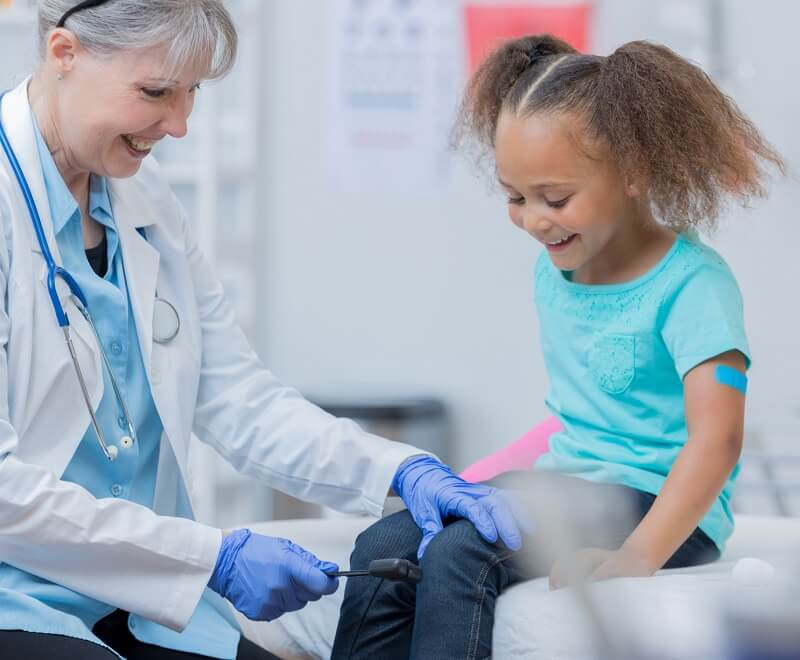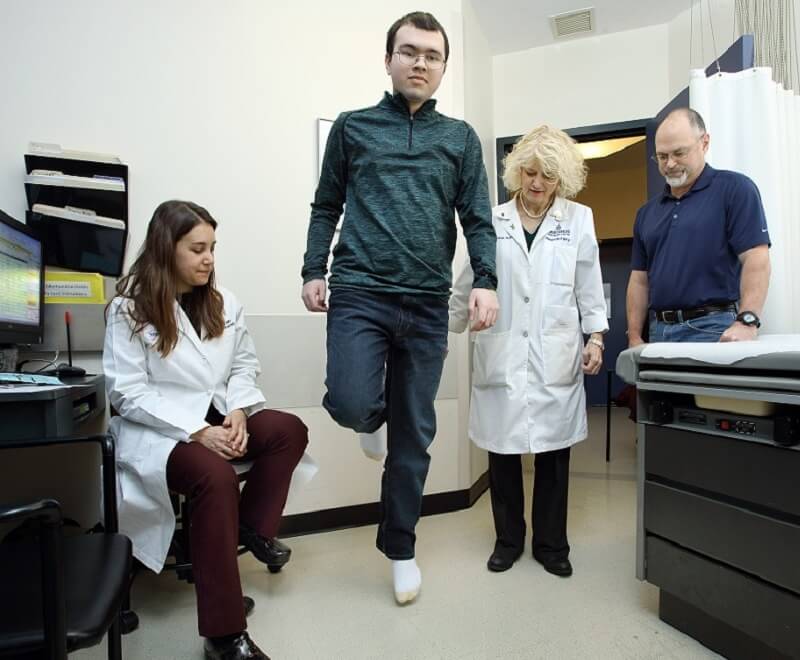Epilepsy in Children

The epilepsy team at Johns Hopkins sees and treats the whole child, with a deep understanding of medical, surgical, social, psychological and educational facets of seizures and epilepsy. Our goals are the same as yours: to ensure your child is as healthy as possible and safely thriving within the family, the school and the community.
Epilepsy Treatment for Children: Why Choose Johns Hopkins
- Your child will benefit from a full spectrum of services, including our First Seizure Clinic and expert diagnosis and treatment (medical, dietary and surgical) supported by our partners in rehabilitation and neuropsychology at the Kennedy Krieger Institute.
- Experts in our state-of-the-art pediatric Epilepsy Monitoring Unit (EMU) diagnose and characterize your child’s seizures and develop custom treatment plans. Within the EMU, pediatric-trained nurses, epilepsy specialists and technicians care for patients in a safe environment designed for children and monitored 24 hours a day, 7 days a week.
- Johns Hopkins’ multidisciplinary group of experts has vast experience in treating all types of seizures and epilepsy affecting children, including neonatal epilepsy, childhood epilepsy syndromes, refractory epilepsy, genetic epilepsies, electrical status epilepticus of sleep, and Rasmussen syndrome.
- If you and your child’s doctor decide that epilepsy surgery may be an option for your child, we offer unparalleled expertise in the most modern approaches, including laser interstitial thermal therapy (LiTT), stereo-EEG and device placement.
Your Child's Epilepsy Treatment: What to Expect
Many types of seizures can affect children. A child may have one or more types of seizures, with symptoms causing changes in awareness, muscle tone, emotions, behavior and sensory experience.
The most effective individualized treatment strategy for your child starts with an accurate diagnosis, which may involve:
- Complete seizure history
- Comprehensive neurological examination
- Electroencephalogram (EEG), including outpatient video-EEG monitoring and long-term video-EEG monitoring
- Neuroimaging: magnetic resonance imaging (MRI), magnetic resonance spectroscopy (MRS), positron emission tomography (PET), functional MRI (fMRI)
- Neuropsychological assessment
- Speech and auditory processing evaluations
- Physical and occupational therapy
- Counseling and support services
Working with Your Doctor to Treat Your Child's Epilepsy

Carl Stafstrom, M.D., Ph.D., Pediatric Epileptologist
Seizures can be frightening and disruptive to your child and your family. The good news is that there are many ways to address the frequency and intensity of most seizures with medications, diet, surgery or a combination of these approaches.
Parents and caregivers work with our doctors as a partnership. For instance, parents help by writing down details of seizures the child experiences, especially noting:
- Date and time of the seizure
- How long it lasted (any seizure lasting more than five minutes is a medical emergency; call 911 unless directed otherwise by a doctor)
- What happened during the seizure
- What the child was doing before, during and after the seizure
- Any changes in health or medications
Patient Resources
A new diagnosis of seizures in a child brings up many questions for parents, families and caregivers. If Your Child Has Seizures: A Guide for the Parents, Families, and Caregivers of Newly Diagnosed Children with Epilepsy or a Seizure Disorder can help you get up to speed quickly on what to expect and how to get help and support.

